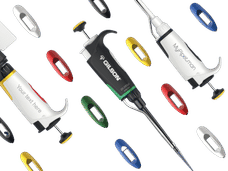Merck and the University of Freiburg Announce Research Cooperation for Electric Battery Materials
Merck KGaA and the Albert-Ludwigs-University of Freiburg announced the commencement of a project to develop and manufacture new battery materials. Fundamentally new conducting salts for lithium-ion batteries to power hybrid and electric vehicles are to be developed in the Merck Battery Materials Lab, which is jointly run and operated by Merck and the University of Freiburg.
Professor Dr. Ingo Krossing and his team in Freiburg, Germany, are performing the synthesis of the new conducting salts on a laboratory scale. Merck will optimize the electrolytes, conduct extensive application tests in specially equipped battery laboratories at the company, and produce the materials on an industrial scale. The electrolyte represents the transport media in which the lithium ions migrate between the electrodes of the lithium-ion battery during charging and discharging. Conducting salts are a key component of the electrolyte. This is the part of the battery which Merck is especially interested in. The aim of the cooperation is to fundamentally optimize the energy density, lifetime and safety of batteries used in hybrid and electric vehicles. “This will not be possible without new materials and formulations. At Merck, we are focusing on developing new and improved electrolyte components“, says Dr. Klaus Bofinger, who heads the Advanced Technologies unit at Merck.
“Our work is concentrated on the synthesis of new conducting salts“, adds Prof. Dr. Krossing. “Our challenge is to optimize the counterion of the lithium ion so that it can better withstand various boundary conditions, e.g. high voltages, extreme heat or cold without disintegrating or becoming restricted with respect to mobility.“
Merck concept laboratories
With its concept laboratories, Merck has been pursuing a new approach since 2006 aimed at building strong alliances with external and internal partners and an international research and technology network. These concept laboratories are an important element of the Advanced Technologies (AT) unit of the Chemicals business sector. The aim of this unit is to develop innovative materials and product through to market launch.
The concept labs are located at hot-spots of academic research around the world and focus on strategic growth areas within the chemical industry. The systematic use of in-house expertise and the core competences of Merck create the preconditions for generating new technologies and innovative products for the Merck Chemicals business. At the same time, external knowledge as well as in-licensing, cooperation and promotion possibilities are utilized. Merck concept labs are located in Darmstadt, Heidelberg, Atsugi (Japan) and Cambridge (Massachusetts).
Other news from the department science
These products might interest you

Gilson MyPIPETMAN Select and MyPIPETMAN Enterprise Pipettes by Gilson
Grab the Gilson pipettes with your name and favorite colors!
Customise Your Pipettes to Fit Your Research

Systec H-Series by Systec
Safe, reproducible and validatable sterilization of liquids, solids and waste
Autoclaves with 65-1580 liters usable space, flexibly expandable for various applications

Whatman™ folded filter papers by Cytiva
Whatman folded filter papers
Convenient folded formats speed up your sample preparation

Get the chemical industry in your inbox
By submitting this form you agree that LUMITOS AG will send you the newsletter(s) selected above by email. Your data will not be passed on to third parties. Your data will be stored and processed in accordance with our data protection regulations. LUMITOS may contact you by email for the purpose of advertising or market and opinion surveys. You can revoke your consent at any time without giving reasons to LUMITOS AG, Ernst-Augustin-Str. 2, 12489 Berlin, Germany or by e-mail at revoke@lumitos.com with effect for the future. In addition, each email contains a link to unsubscribe from the corresponding newsletter.
Most read news
More news from our other portals
See the theme worlds for related content
Topic World Battery Technology
The topic world Battery Technology combines relevant knowledge in a unique way. Here you will find everything about suppliers and their products, webinars, white papers, catalogs and brochures.

Topic World Battery Technology
The topic world Battery Technology combines relevant knowledge in a unique way. Here you will find everything about suppliers and their products, webinars, white papers, catalogs and brochures.
Topic world Synthesis
Chemical synthesis is at the heart of modern chemistry and enables the targeted production of molecules with specific properties. By combining starting materials in defined reaction conditions, chemists can create a wide range of compounds, from simple molecules to complex active ingredients.

Topic world Synthesis
Chemical synthesis is at the heart of modern chemistry and enables the targeted production of molecules with specific properties. By combining starting materials in defined reaction conditions, chemists can create a wide range of compounds, from simple molecules to complex active ingredients.
Last viewed contents
Agilent Technologies and Groton Biosystems Sign Co-Marketing Agreement for Pharmaceutical Manufacturing Solutions
Basell launches new Metocene metallocene-based polypropylene grade targeted to customer TWIM
Organon continues to invest in Newhouse Research Centre - New State-of-the-Art automated compound store to transform Organon global drug discovery




























































